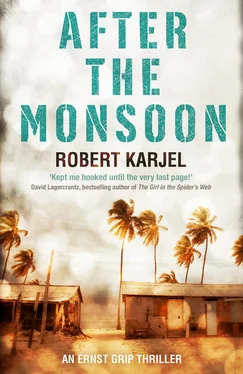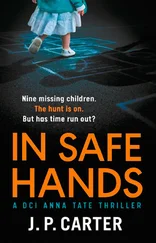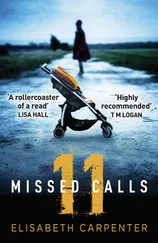“They’ll miss us” was the first thing he said, when she was nearly done. Carl-Adam was leaning back, and she put an arm around his head in an attempt to comfort him and get close. She thought he meant the kids, that he was already thinking of himself and her as dead.
“I’m all right,” she said, and tried to smile. Not a second passed without her thinking about Alexandra and Sebastian, left alone in their cabin below deck.
But Carl-Adam had seen a glimmer of hope, knowing that they’d turned west toward the Somali coast. “The link,” he explained, his voice a whisper. “Everyone will see.”
On their blog, which they kept so friends and family could follow their trip, their location was automatically updated every ten nautical miles with a small red dot on a map. They probably wouldn’t be able to write another word, but their dotted trail now went counter to all their previous posts about where they were heading. “They’ll sound the alarm.” Even in his weakened state, this was Carl-Adam’s way of relating to what had happened, maintaining his distance, shunning the blood and vulnerability with his hope that someone would see the conflicting data. Jenny didn’t know what to think. He was busy finding a logical solution, while she was doing everything to keep them alive. Below deck, the children were still alone, with at least five pirates.
“Of course,” she said, kissing Carl-Adam’s forehead. “Someone will get worried, and they’ll find us.”
The days went by. A sixty-two-foot sailboat towing two skiffs close behind. Westward went the dotted trail on both the MaryAnn ’s GPS and the family’s sailing blog. The corpse, left exposed in one of the skiffs, had begun to swell. There were only a few meters between the boats, and from the quarterdeck they could clearly see his face, the teeth shining white in an unnatural grin. Starting from the mangled shoulder, the flesh was turning a bad color and slowly cracking. Whenever they went up on deck, it was impossible not to look, and the weak wind blew the stench at them.
Below deck, Jenny tried to restore order, unwilling to give in. She kept picking up, even though the floor was soon covered with trash again. Wads of paper and food packaging lay everywhere. She gave up on the toilets, which reeked ever more strongly of urine. But for her own sake and for the dignity of the children, she tried to keep their regular routines. She got up at the same time every morning, tried to cook at least one meal a day in an orderly way, kept busy, supervised Alexandra’s schoolwork. Her efforts were often blocked, as sometimes activities would be forbidden, or stuff would disappear, or someone would take away their food, but still—she’d try again. Jenny’s patience was all that kept the creeping resignation at bay, creating a sense of safety and keeping them from giving up: they are there, and we are here. Before the pirates, on board she’d always worn shorts and gone barefoot, but now she covered her legs and wore shoes. And as a mother she was forced to choose: the children or Carl-Adam? So their shared cabin had become his infirmary, and she slept with Alexandra and Sebastian. She didn’t leave them alone for a moment, unless absolutely necessary. On board, she and the children moved as a pack. For an hour or so every evening, she tried to make sure all four were together, although her injured husband mostly slept.
The second time the pirates went after Carl-Adam was when they wanted to go faster; the weak wind was making Redbeard impatient. They shook Carl-Adam and landed a couple of decent punches before Jenny understood and started up the engine. She didn’t try to explain that the tank would soon be empty. They ran out of diesel two days later, and then there was more shouting and a few kicks before they were powered only by the wind again. Carl-Adam recovered somewhat, but he had trouble putting weight on his injured leg, and his hand was an ominous red. He mostly just sipped water and lay on his bunk, and Jenny washed and dressed his wounds every day. They’d run out of bandages, so ripped sheets had to do. When she asked him to move his fingers, only his thumb twitched.
It wasn’t long before Alexandra made an innocent mistake. One afternoon, on her own initiative, she sat down at the computer on the chart table, to send an essay in for school. Despite all the chaos on board, she still wanted to do well in her last semester of junior high. Jenny couldn’t stop her, and Redbeard saw and understood what a satellite link could lead to. He yelled, Alexandra glared, a loud slap was heard, and she cursed in defiance before Jenny stepped between them, and then he furiously snatched all the cables out of the computer. The link was broken; there was no more dotted trail. Later that evening, when she and the children were below with Carl-Adam, he asked about the commotion. Alexandra shrugged, and Jenny said Redbeard had gotten upset when she’d opened some cans. She held his hand in bed, and in his eyes, saw that he didn’t completely believe her.
“Someone will notice?” he said.
“Of course,” she replied. “Someone will miss us.”
Her lie in front of the children, her own sense of hopelessness while needing to keep up an appearance of strength. It was the loneliest moment she had ever known on the boat.
Redbeard was called Darwiish by the other pirates, and after the incident at the chart table, Alexandra kept a close eye on him. She’d slip past Jenny and say: “We have to watch out, Redbeard is drunk.” The liquor bottles on board had disappeared from the cabinet on day one. No one saw when he drank, but after nightfall, they sometimes saw his awkward movements and moist lips. From time to time, he’d fire shots into the night, but mostly he kept to the cockpit at the stern, or the middle of the cabin below deck, sitting up straight and thin, and watching everything and everyone through narrow eyes.
The slowness, the heat, and the weak wind that kept them at a crawl took their toll. Fights broke out among the pirates, and there were new outbreaks of looting to relieve the boredom. When Darwiish roared at or hit one of his own, it was impossible to say if he was settling a dispute or simply acting on impulse. Once, he forced one of the younger pirates, not much more than a boy, to sit at the bow for the whole afternoon without shelter from the sun. Only when he fainted did someone go up on the deck and pull him away.
Finally, the situation with the bloated corpse became unbearable. Three pirates stepped into the skiff with handkerchiefs tied over their noses and mouths, and they rolled the body over the side. They’d wrapped a chain they’d found on board around his feet as a sinker, but the dead man was so bloated with gas that he floated anyway, with one arm strangely sticking up above the surface. He looked like someone in distress who’d been frozen in his plea for help, as he slowly drifted away, disappearing into the mist.
Only once was Darwiish caught in a moment of indecision. When a military helicopter crossed the horizon, the pirates came to a standstill on deck, all eyes focused on the same point in the sky. A burst of static on the radio. Darwiish looked at the speaker as if it were a weapon aiming at him. Suddenly there was a chance. The emergency flares, Jenny thought. They were right there in a box next to the cockpit, still intact, she knew it for a fact. She could do it. She had time; they were two steps away. Just tear off the tape and pull. Poof—a red light rising into the sky. What a sight, what defiance. It would have cost them, maybe a life. But still.
Then she thought of the children, especially Sebastian. She hesitated. The sound of the helicopter died away.
She should have fired that flare. It was the first thing she thought of two days later when she saw land before the bow of the MaryAnn.
Читать дальше












